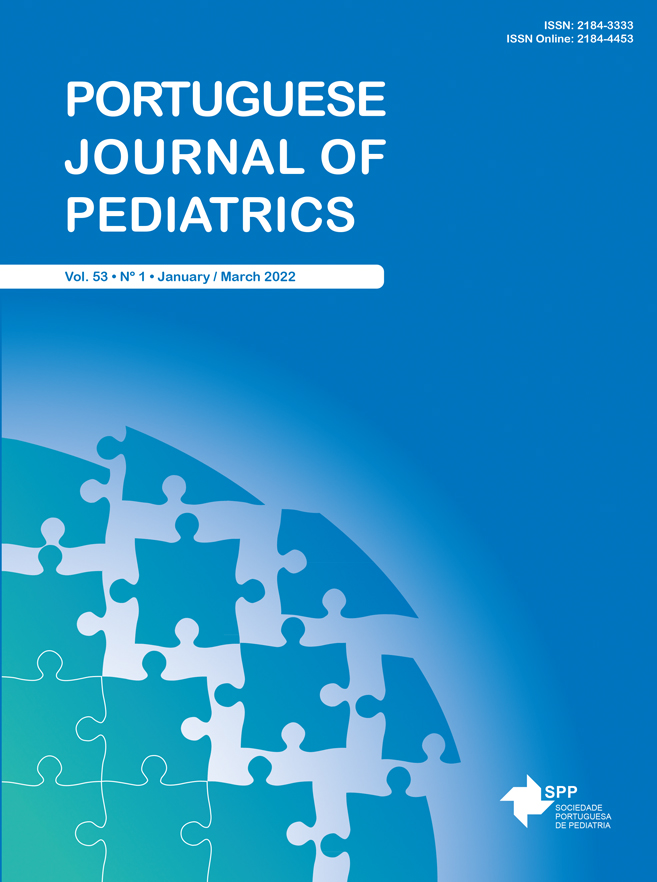Pediatric Interhospital Transport: Who and How We Transport in the South of Portugal
DOI:
https://doi.org/10.25754/pjp.2022.23918Abstract
Introduction: Pediatric inter-hospital transport (PIT) allows critically ill patient to be transported to an Intensive Care Unit by a qualified team. Since 2012, Portugal has an organized pediatric inter-hospital transport system.
Methods: Observational study using prospectively collected data on patient and transport characteristics, from South-PIT retrievals for 2 years. Patient management suggestions were analyzed during the last year.
Results: From the 1243 retrievals performed: 93% were urgent, 53% neonatal, 61% male, median age: 23 months (minimum 20min; max 18yr), median weight: 3.21kg (minimum 0.34g; maximum 101kg). In 65% the referral hospital was in group I, II or similar. The median total transport duration was 1h40, with a median time until arrival and on-site stabilization of 30min. Planned transports lasted on average 30min more (p=0.015) than urgent. The most frequent indication for transport was respiratory insufficiency (25%). Before transport 593 (48%) patients were unstable. During transport there was a 7% improval in clinical stability (p=0.008). Clinical deterioration and complications occurred only in 49 (4%) and 74 (6%) transports. Two patients died (0.2%). Procedures and/or therapies were required in 99% and 76% of transports and were of advanced life support in up to half. Patient management suggestions were made by the PIT doctor in 40% of transports. The 92% compliance was independent of clinical stability (p=0.622).
Conclusions: The South-PIT transports highly complex and severe patients with a high-quality level of care. The large volume of transports, patients stability and the few adverse events reported sustain a specialized pediatric transport system.
Downloads
Downloads
Published
Issue
Section
License

This work is licensed under a Creative Commons Attribution-NonCommercial-NoDerivatives 4.0 International License.









